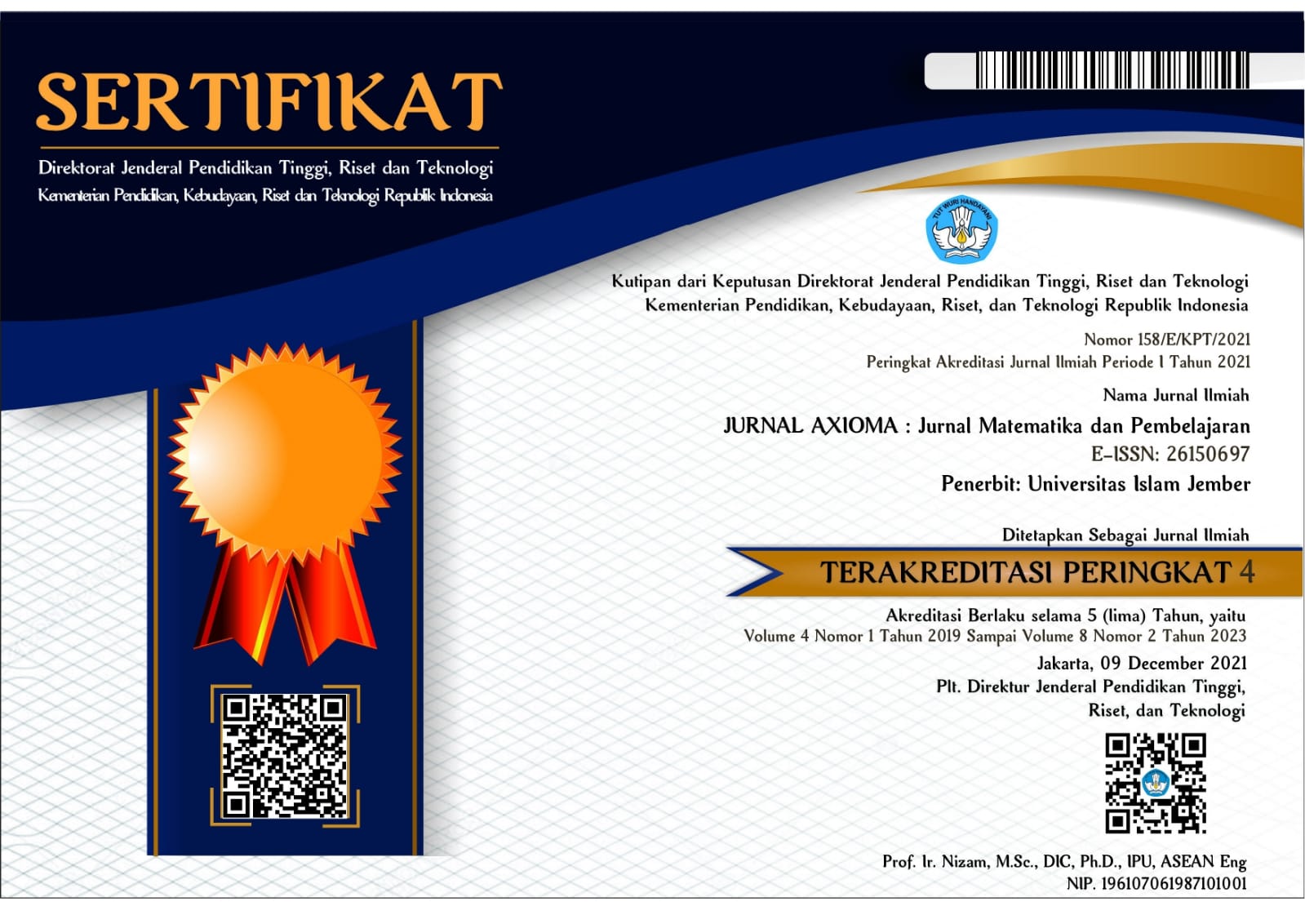The Comparison of Cooperative Learning JIGSAW type with Props and Conventional Learning on Students Learning Outcomes
Abstract
The purpose of the research to know the differences in student learning outcomes between the taught by using cooperative learning model with JIGSAW type through the use of props with conventional learning and to know which learning outcomes are better between those taught by using cooperative learning model with JIGSAW type through the use of props with conventional learning. The kind of the research is comparative with quantitative approach. The subjects of the research are students of class VIII MTs Negeri 1 Jember. With the data collecting method that used are test and documentation. The data analysis method that used are quantitative using Man Whitney and test z test. The result of the research there are differences of students' learning outcomes that taught by using cooperative learning model with JIGSAW type through the use of props and conventional learning, and better learning outcomes are taught by cooperative learning model with JIGSAW type.
Keywords: JIGSAW, conventional, and mathematical learning outcomes
References
Hobri. 2010. Model-Model Pembelajaran Inovatif . Jember: Pena Salsabila.
Isjoni. 2010. Cooperative Learning Efektifitas Pembelajaran Kelompok. Bandung: Alfabeta.
Jihad, Asep dan Haris, Abdul. 2008. Evaluasi Pembelajaran. Yogyakarta. Multi Pressindo
Lie, Anita. 2002. Cooperative Learning Mempraktikan Cooperative Learning Di Ruang-Ruang Kelas. Jakarta: Grasindo.
Slavin, Robert, E. 2010. Cooperative Learning Teori, Riset, dan Praktik. Bandung : Nusa Media.
Suprijono, Agus. 2010. Cooperative Learning. Yogyakarta: Pustaka Pelajar
Downloads
Published
How to Cite
Issue
Section
License
Copyright (c) 2018 JURNAL AXIOMA : Jurnal Matematika dan Pembelajaran

This work is licensed under a Creative Commons Attribution 4.0 International License.


2.jpg)
.jpg)











